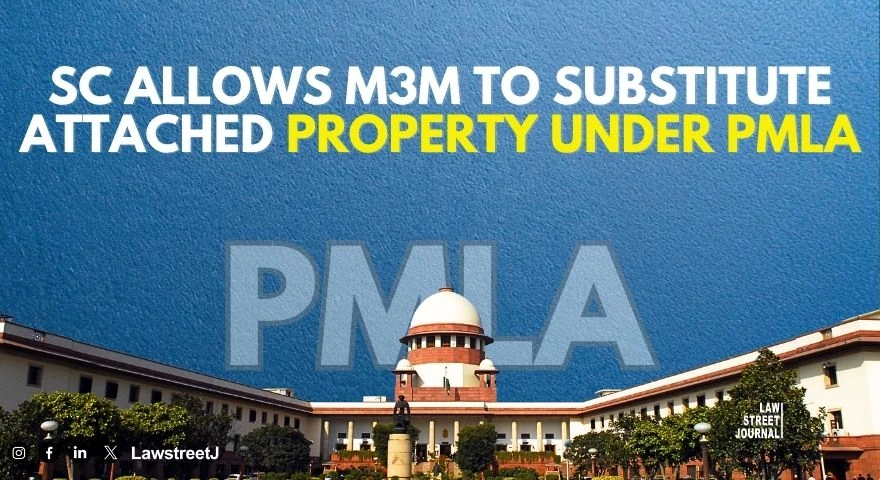NEW DELHI: The Supreme Court has allowed the substitution of land attached under the Prevention of Money Laundering Act (PMLA), granting major relief to M3M Group.
The two-judge bench comprising Justice Pamidighantam Sri Narasimha and Justice R Mahadevan, while hearing a Special Leave Petition filed by M3M, held that a property attached under the PMLA may be substituted by an alternate asset of equivalent or higher value.
According to legal experts, the ruling marks a decisive shift in enforcement jurisprudence — striking a balance between the State’s interest in securing alleged proceeds of crime and the fundamental right of legitimate enterprises to pursue economic activity.
The court, in doing so, also reaffirmed its position taken in Revati Cements and Anr Vs Union of India, where substitution of attached property with fixed deposits was permitted. In extending this rationale to immovable property, the court has ensured that valuable economic assets are not indefinitely frozen, particularly in sectors like real estate where delays can have significant downstream effects.
M3M’s application sought to substitute the provisionally attached land with an alternate parcel of equal or greater value, to enable development activity to proceed — while maintaining complete compliance with the PMLA’s safeguards.
The property was attached by a provisional attachment order issued on July 18, 2024.
The court allowed the substitution after considering an affidavit filed by the ED.
The central agency verified that the proposed commercial units located in M3M Broadway, Gurugram, had a total fair market value of Rs 317 crore. This included Rs 275 crore worth of units initially proposed and another Rs 42 crore worth of additional units later offered by the real estate company.
The counsel submitted that the ED is agreeable to the substitution of the property, but requested that it be subject to certain conditions.
In its June 30 order, the bench said, "While we allow the substitution of the property as indicated in paragraphs 10(a), 10(b) and 10(c) in the additional affidavit, the same shall be subject to the conditions as specified in paragraphs 10(d)(i) to 10(d)(ix). It is also agreed by the learned counsel appearing for the parties that after this order, nothing really survives in the Special Leave Petition. The Special Leave Petition stands disposed of.”















